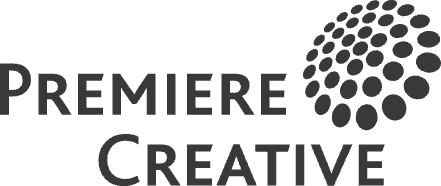The purpose of search engine optimization (SEO) is to guide websites to higher rankings in organic search results. With a clear goal of driving more traffic from search queries, SEO tactics also boost visibility and attract qualified visitors, proving far more cost-effective than buying clicks through Google’s advertising platform.
If your brand’s marketing approach focuses on earning higher rank for specific services or products with related SEO search terms and phrases, then you should see some success over time without having to dip into your funds (assuming you adhere to proven SEO tactics). But if you’re a newcomer to the digital marketing game, then you’ll need some expert instruction when formulating an SEO keyword strategy to reduce unnecessary expenses. Read on to learn the ins and outs of SEO keywords to help you make more strategic decisions for business growth.
What are SEO Keywords?
Keywords refer to terms that SEO writers add to online content to improve search engine rankings for those terms. When marketers optimize content around words and phrases coupled with an off-page backlink strategy, websites can rank higher for those terms.
What are the Different SEO Keyword Types?
- Branded Keywords: These phrases are semantic variations of a keyword that always include a brand’s name. (For example, Premiere Creative marketing services, Premiere Creative SEO services, etc.)
- Product & Service Keywords: These keywords describe a brand’s product or services. You may notice some overlap with your branded keywords.
- Geo-targeted Keywords: These keywords list specific locations (city, region, neighborhood, etc.) and help brands secure rankings at the local level.
- Market-defining Keywords: Your audience influences these broad phrases, which reflect your business or industry.
- User-centric Keywords: These phrases refer to specific keywords containing language and inquiries your audience uses.
Conducting Competitive Research on SEO Keywords
Targeting the correct keywords based on users’ search intent allows you to build your online presence and push your web pages to the right audience. Brainstorming an assortment of strong keywords is a crucial component of any online marketing campaign because it serves as a foundation that helps guide all further SEO initiatives. When conducting keyword research, keep these three elements in mind:
Monthly Search Volume
This data shows how many people search for a keyword or phrase monthly. As a general rule of thumb, avoid broader keywords that only produce small traffic volume since won’t receive much traction.
Competition
You may notice that you’ll claim rank for some keywords quicker than others. Google AdWords, for instance, categorizes the levels of difficulty as low, medium, or high or on a number scale from 1-100.
Long-Tail Keywords
Long-tail keywords are long (usually 4+ word) terms that searchers use in Google and other search engines. Two-word search queries are harder to secure rank for because they typically generate high search volume due to existing content produced by businesses also looking to gain ranking. Long-tail keywords are phrases that help narrow down a search by being more specific. So while your website’s search volume will probably be much lower, the competition to secure rank isn’t as intensive, and those terms are far more targeted (quality over quantity).
Furthermore, you cannot forget to reexamine your audience since their information provides invaluable insight! Key demographics – like age, gender, interests, and behavior – will give you a better sense of your audience. Start reviewing your website, social media pages, and Google Analytics, which will grant your team indispensable insights for future online campaigns. The data points you synthesize will help determine the specific topics that interest your audience and how to structure your writing to influence qualified traffic to your website.
What is Keyword Density?
Also known as keyword frequency, keyword density is the number of times a keyword appears within a web page as a ratio or percentage of the overall word count. Concerning keyword density, there is no one-size-fits-all approach. Nonetheless, overstuffing keywords inserted into content can damage your SEO efforts because Google’s algorithms can discern nonsensical content. Search engines, like Google, Yahoo, and Bing – have advanced algorithms in place to track websites that use keyword stuffing.
What is Keyword Stuffing?
Keyword stuffing is the unethical practice of inserting many keywords into various web pages to artificially increase a page’s ranking in search results and drive more traffic to the website. We cannot overstate the importance of avoiding this black hat SEO tactic because search engines will penalize any website guilty of keyword stuffing.
Search engines are more advanced than they used to be and can easily recognize keyword-stuffed content. That means cramming keywords into your digital content is unlikely to help you rank for your intended keyword phrases. Remember to write your content like a human, not a machine, and only add keywords when natural and appropriate.
Maximizing Your SEO Keywords for Improved Online Success
Discovering the right topics and phrasing allows you to hone in on your target audience, and possibly extend your reach to new markets. Conducting in-depth keyword research isn’t always a complicated process. What words would you use to define your brand? Begin by assessing the subject matter of your business, and then narrow down the general topic of your site and the types of categories it covers. Once you have an exhaustive list, you can begin crafting your SEO campaign.
Are you still curious how leveraging proven SEO strategies can strengthen your next online marketing plan? Premiere Creative specializes in SEO and serves small to medium-sized companies in New Jersey, New York City, and the surrounding areas. Learn more about our SEO services by dialing (973) 346-8100 today.

